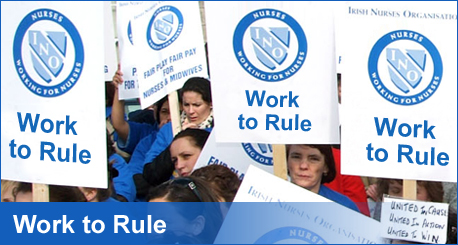Over 30 years of anarchist writing from Ireland listed under hundreds of topics
Wages
Irish Ferries: Exploiting workers and insulting Wilde
When Irish Ferries launched their new €50million vessel in Dublin Port on Tuesday 29th January, 400 guests from the tourism, freight and shipping sectors attended the naming ceremony. How many of them, I wonder, took a moment as they quaffed their champagne and nibbled on their canapés to ponder on the news revealed by International Transport Workers Federation inspector, Ken Fleming, that the workers who would be manning the ferry will be paid as little as €4 per hour?
Low pay - A merry christmas for the gombeen man
Christmas has increasingly become a matter of spending money on presents, rather than spending time with your loved ones. Where this might be hard for some, it can be financially unbearable for others. In order to meet the expectations from the society and avoid humiliation, we take up loans to get through family events such as Christmas.
Is Equal Pay Possible?
You thought that equal pay had been sorted years ago? Well, according to the United Nations, women and girls do two thirds of the world’s work for 5% of the income. Of the world’s 550 million working poor, those unable to lift themselves and their families above the $1 per day threshold, 330 million, or 60%, are women.
A woman's work is never done
I am going to look generally at the issue of woman’s work. Initially a very quick survey of the global position – then some more specific stuff on wage differentials, house work, work conditions, child care in Europe and Ireland with some possible suggestions for some points for our new program maybe to be incorporated into a general section on work.
Support the Nurses fight for 10% wage rise and 35 hour week
 The nurses’ work-to-rule and their threat to escalate the action next week has been met with an outraged onslaught by Mary Harney and Bertie Ahern. The sight of a group of workers standing up and demanding their rights has become so unusual that it seems as if the government cannot believe the temerity of the nurses in doing just that.
The nurses’ work-to-rule and their threat to escalate the action next week has been met with an outraged onslaught by Mary Harney and Bertie Ahern. The sight of a group of workers standing up and demanding their rights has become so unusual that it seems as if the government cannot believe the temerity of the nurses in doing just that.
What causes low wages - Unequal power, unequal pay
During the year a spate of reports have 'discovered' what a lot of workers already know - that equal pay for equal work just doesn't exist. Although legal victories and a raft of employment equality legislation have made some dents, the fact remains that discrimination on the grounds of gender, ethnicity and age (to name just a few) persists and is widespread. It seems obvious to ask: why?
Working conditions in retail - Confessions of a store grunt
AT THE MOMENT there are approximately 236,400 people working in the wholesale and retail trade. Most of us working in this sector are badly paid, as unskilled labour usually is. Recently Roches Stores office workers went out on strike for better pay. Some of them were being paid as little as £4.16 an hour. They were successful and got a 25% pay rise.
Workers copy TDs and demand an extra £250 a week
Conference notes the pay claim lodged by TDs seeking an increase of £250 per week. Therefore conference instructs the incoming Executive Committee to lodge a claim for an across the board increase of £250 per week for all PSEU members. This claim is to be lodged with the Department of Finance by 1st June 2000.
Social Welfare Bill 1999 - Hassling people into very low paid jobs
The Scheme Workers Alliance organises people on employment schemes to combat cutbacks and win the extension of part-time workers rights. Uisce from 'Workers Solidarity' spoke to Leo Duffy and Seamas Carrehan of the SWA about the upcoming Social Welfare bill.The Government is continuing its campaign against working class people. Workfare was introduced last year by Mary Harney, the Minister for Enterprise, Trade & Employment. It forces people into shit low paid jobs by cutting their social welfare completely. The next phase in this assault is the proposed Social Welfare Bill 1999.
The Celtic Tiger .......who's doing the roaring?
The closure of Seagate in Clonmel with the loss of 1,600 jobs underlines the knife-edge on which the Celtic Tiger economy is balanced. But, particularly in the greater Dublin area, there is an economic boom and for many - though not all - this boom has brought jobs and hope for the future. Where did this boom come from and how long will it last?

